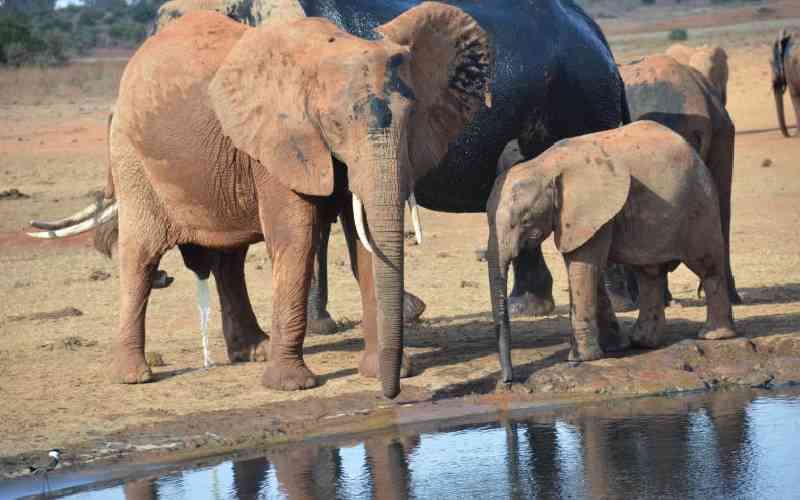
The Tsavo River and the Mombasa-Nairobi Highway in Taita Taveta County are highly polluted, putting the lives of wild animals in danger, a research says.
The research by the Wildlife Research Training Institute (WRTI) says about 50 elephants died after drinking water from the highly polluted river in 2022 alone.
Conservationists say the highway and the river have become an eyesore due to scattered waste, which is impacting negatively on tourism activities and wildlife conservation efforts.
Jillo Arero, the Kenya Wildlife Service (KWS) Tsavo Conservation Area Senior Assistant Director, said the waste dumped mostly by truck drivers has endangered wildlife species in the river.
Tsavo River is the main source of water in the parks, feeding the ecosystem’s wild animals, as it runs through Tsavo East and Tsavo West National Parks.
It joins the Athi River to form the Galana River on its way to the Indian Ocean. Conservationists warn that its massive degradation will cause an ecological disaster.
WRTI’s director Fredrick Lala noted that the river is now a dumping site for plastic waste.
- The Last Laugh: Why Kenya's most detested carnivore deserves better
- KWS embarks on final push to save Northern White Rhinos through IVF
- Between refuge and ruin: How Dadaab's survival battle is fuelling an eco crisis
- Ostrich leaves vets eating dust in the savannah
Keep Reading
“Tsavo River waters, which fall into the Indian Ocean, are clogged with plastic waste and other harmful litter. Marine life is in danger due to massive degradation and this will lead to death,” said Dr Lala.
“Dumping of waste in wildlife protected areas is not allowed. Long-distance drivers throwing litter along the highway will be punished by law,” he warned.
Arero blamed motorists for degrading the highway and the river ecosystem.
 The Standard Group Plc is a multi-media organization with investments in media
platforms spanning newspaper print
operations, television, radio broadcasting, digital and online services. The
Standard Group is recognized as a
leading multi-media house in Kenya with a key influence in matters of national
and international interest.
The Standard Group Plc is a multi-media organization with investments in media
platforms spanning newspaper print
operations, television, radio broadcasting, digital and online services. The
Standard Group is recognized as a
leading multi-media house in Kenya with a key influence in matters of national
and international interest.











